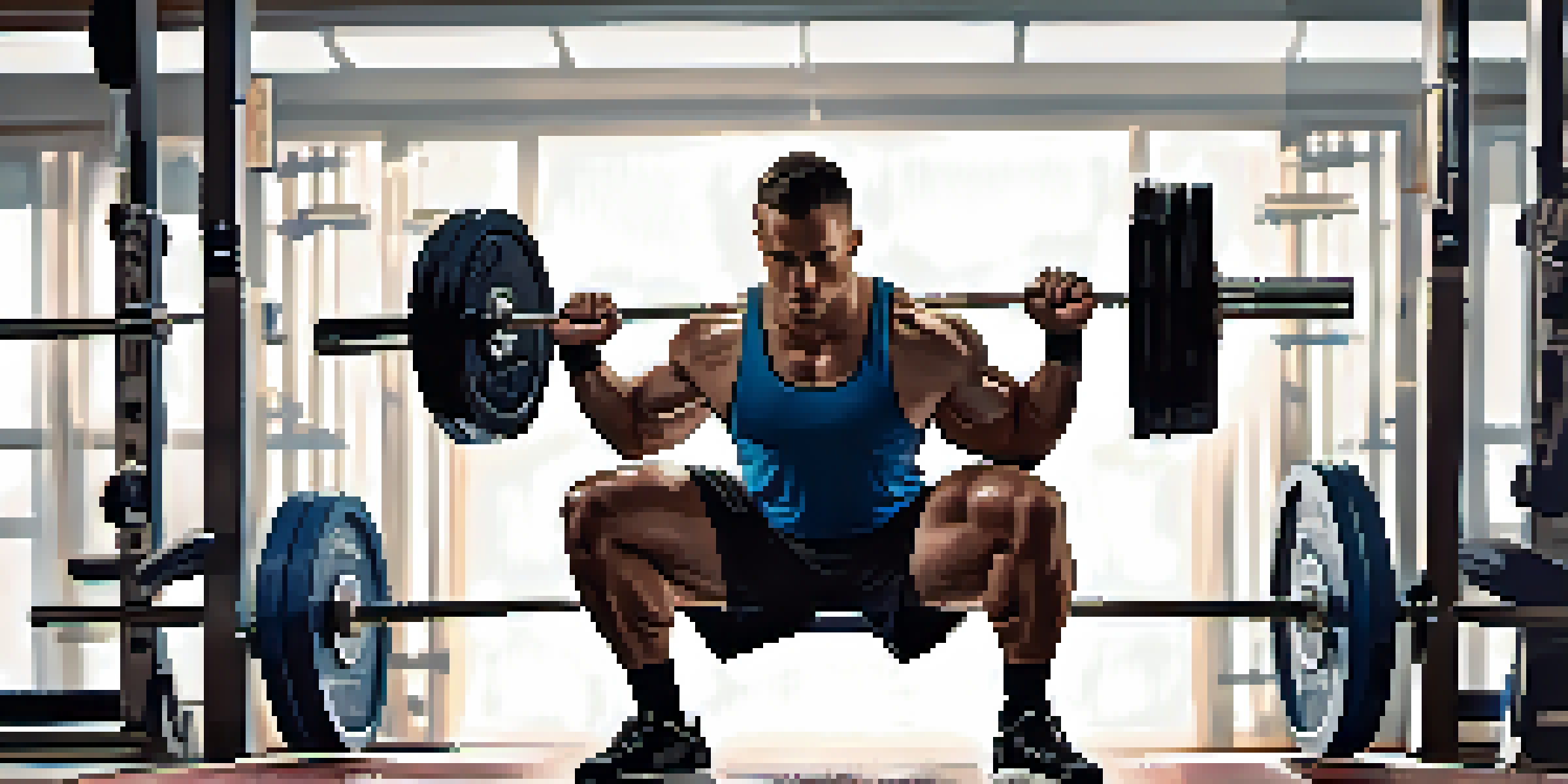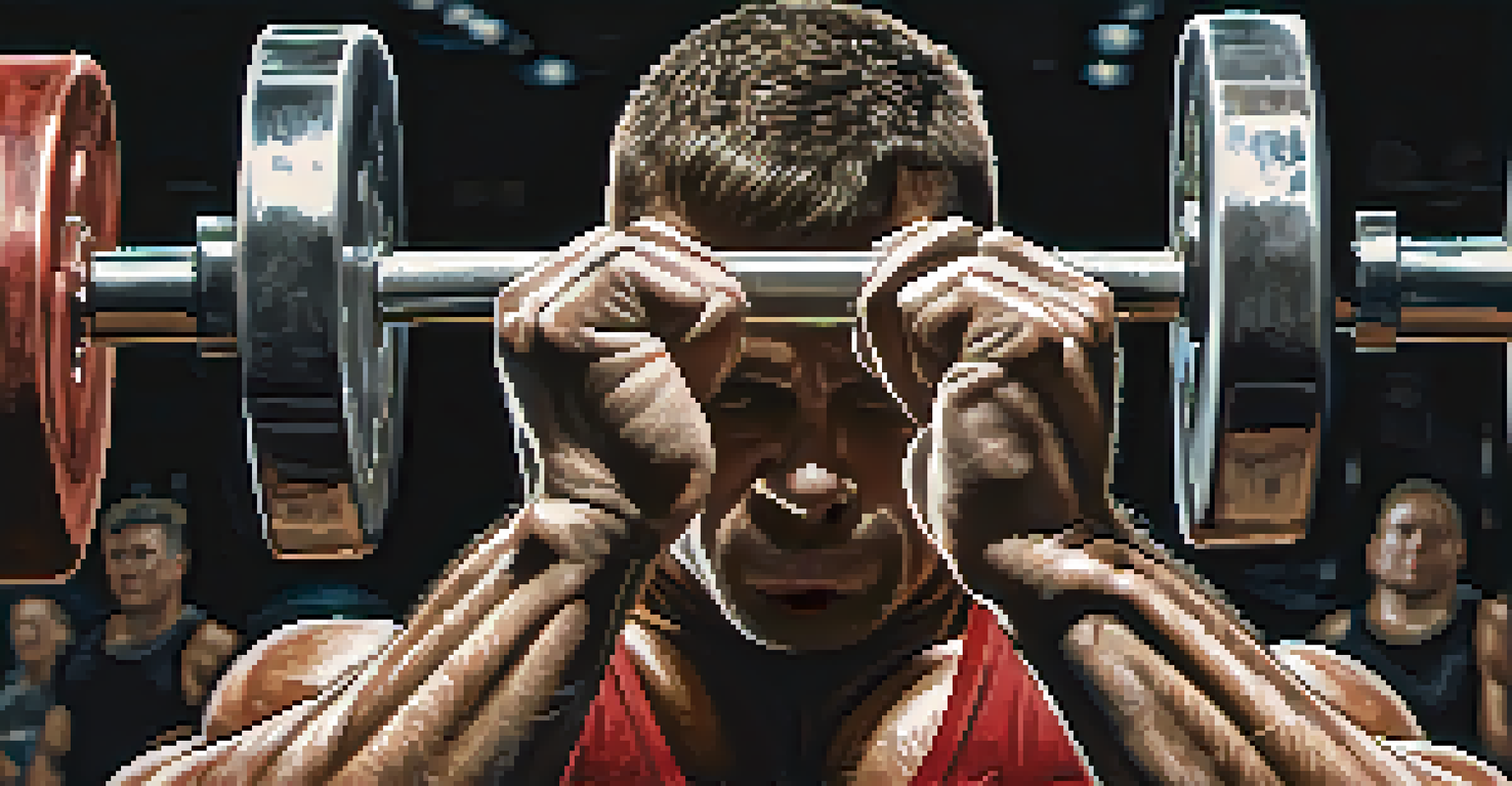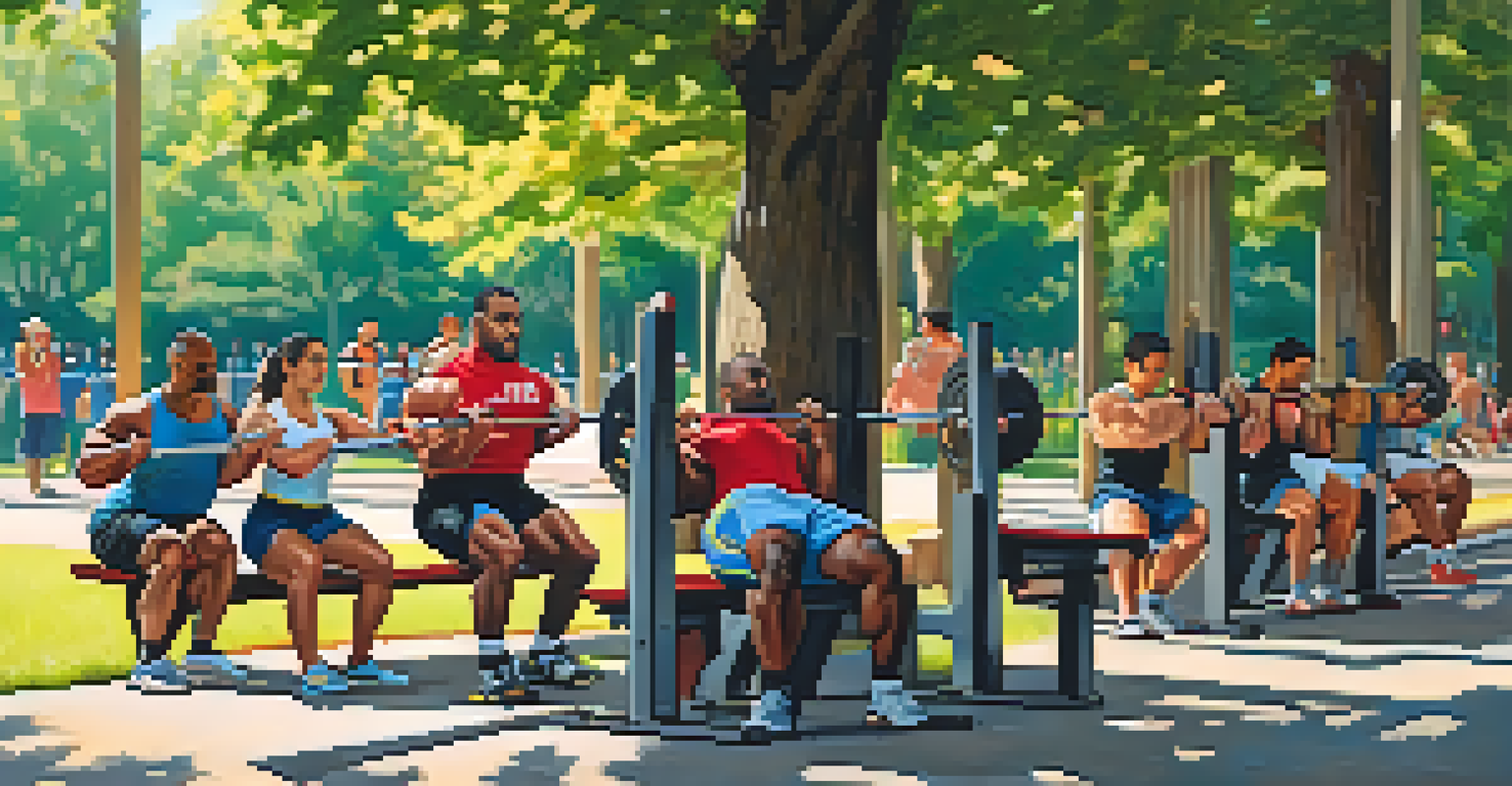Powerlifting Will Make You Bulkier Than You Want: Myth or Fact?

Understanding Powerlifting: The Basics Explained
Powerlifting is a strength sport that focuses on three main lifts: the squat, bench press, and deadlift. Unlike bodybuilding, which emphasizes muscle aesthetics, powerlifting aims to maximize strength and power. This distinction is crucial when considering how powerlifting might affect your physique.
Strength does not come from physical capacity. It comes from an indomitable will.
Many people assume that lifting heavy weights will inevitably lead to a bulky physique, but this isn't entirely accurate. The goal of powerlifting is to lift the maximum amount of weight possible, not necessarily to increase muscle mass. Therefore, understanding the core principles of powerlifting helps clarify its impact on body composition.
Moreover, powerlifting programs can be tailored to different goals, whether that’s strength, endurance, or even fat loss. This versatility allows for a more customized approach, which can help dispel the myth that powerlifting will make everyone bulkier.
The Role of Nutrition in Body Composition
Nutrition plays a pivotal role in how your body responds to training, including powerlifting. If you're lifting heavy but consuming more calories than you burn, you may indeed gain weight, potentially leading to a bulkier appearance. Conversely, if you're mindful of your diet, you can maintain a leaner physique while powerlifting.

For instance, a balanced diet rich in protein can support muscle repair and growth without excessive caloric intake, helping you achieve strength without unwanted bulk. Think of your body as a car; the fuel you provide determines how it performs. With the right nutrition, you can optimize your powerlifting performance while keeping your physique in check.
Powerlifting Focuses on Strength
Powerlifting emphasizes maximizing strength through three main lifts rather than muscle aesthetics.
Ultimately, it's not just about lifting weights—it's about how you fuel your body. By aligning your nutrition with your workout goals, you can control your body composition more effectively while still enjoying the benefits of powerlifting.
Genetics: Your Body's Blueprint for Muscle Growth
Genetics plays a significant role in how your body responds to strength training. Some individuals naturally gain muscle more easily than others due to their genetic makeup. While powerlifting may lead to muscle growth in some, others might experience minimal changes in size.
The difference between a successful person and others is not a lack of strength, not a lack of knowledge, but rather a lack in will.
For example, if you have a naturally lean physique, powerlifting may enhance your strength without substantially increasing muscle mass. This variance highlights the importance of understanding your individual body type and how it interacts with different training methods.
Thus, while powerlifting can contribute to muscle development, it doesn't guarantee that everyone will become bulky. Recognizing your genetic predispositions can help set realistic expectations for your training journey.
Training Styles: Heavy vs. Volume Lifting
When it comes to powerlifting, the way you train can significantly influence your physique. Heavy lifting with lower repetitions typically focuses on strength gains, while higher volume lifting with more repetitions can promote muscle hypertrophy, or growth. Choosing one approach over the other can dictate how bulky you become.
If your goal is to increase strength without excessive size, you may opt for heavy lifting routines. On the other hand, if you're looking to build muscle, incorporating higher volume and additional accessory work can lead to a bulkier appearance. Understanding these training styles allows you to tailor your workouts to align with your desired outcomes.
Powerlifting vs. Bodybuilding
Powerlifting focuses on maximizing strength through three main lifts, unlike bodybuilding, which emphasizes muscle aesthetics.
In essence, the choice of training style is in your hands. By selecting the right approach, you can enjoy the benefits of powerlifting without the fear of unwanted bulk.
The Importance of Recovery in Powerlifting
Recovery is a crucial aspect of any training program, particularly in powerlifting. When you lift heavy weights, your muscles undergo stress and micro-tears, which need time to repair. Adequate recovery helps prevent excessive muscle growth that could lead to a bulkier physique.
If you neglect recovery, you may find yourself overtraining, which can lead to muscle fatigue and potentially hinder your performance. Just like a plant needs water to thrive, your body needs rest to optimize the benefits of powerlifting. Incorporating rest days and active recovery techniques is essential to maintain a healthy balance.
By prioritizing recovery, you can enhance your strength gains without the added bulk. This balance allows powerlifters to perform at their best while preserving their desired body composition.
Myth or Fact: Powerlifting Equals Bulkiness?
To sum it up, the belief that powerlifting will automatically make you bulky is more of a myth than a fact. While powerlifting can lead to muscle growth, the extent of that growth largely depends on individual factors such as genetics, nutrition, and training style. With the right approach, you can enjoy the benefits of powerlifting without the fear of becoming overly bulky.
It's essential to remember that strength training doesn't always equate to significant size increases. Many powerlifters maintain lean physiques while achieving impressive strength gains through proper training and nutrition strategies. Each person's journey is unique, and your results will vary based on your choices.
Nutrition Shapes Body Composition
A balanced diet rich in protein is essential for supporting powerlifting performance while controlling body composition.
Ultimately, if you enjoy powerlifting and are mindful of your training and nutrition, you can achieve your strength goals while staying within your desired body composition.
Finding Your Balance: Powerlifting Without Bulk
Finding the right balance between strength training and body composition is key for those concerned about becoming bulky. Whether you want to focus on powerlifting, bodybuilding, or a mix of both, establishing clear goals can guide your training decisions. This clarity will help you select the right program that aligns with your aspirations.
Additionally, consider incorporating a variety of training modalities. For example, mixing powerlifting with cardio or other forms of resistance training can promote overall fitness and prevent unwanted bulk. Think of it as a buffet; you can sample different styles to find what works best for you.

In conclusion, achieving your fitness goals is about making informed choices. With thoughtful planning and an understanding of your body’s needs, you can enjoy the perks of powerlifting while maintaining the physique you desire.